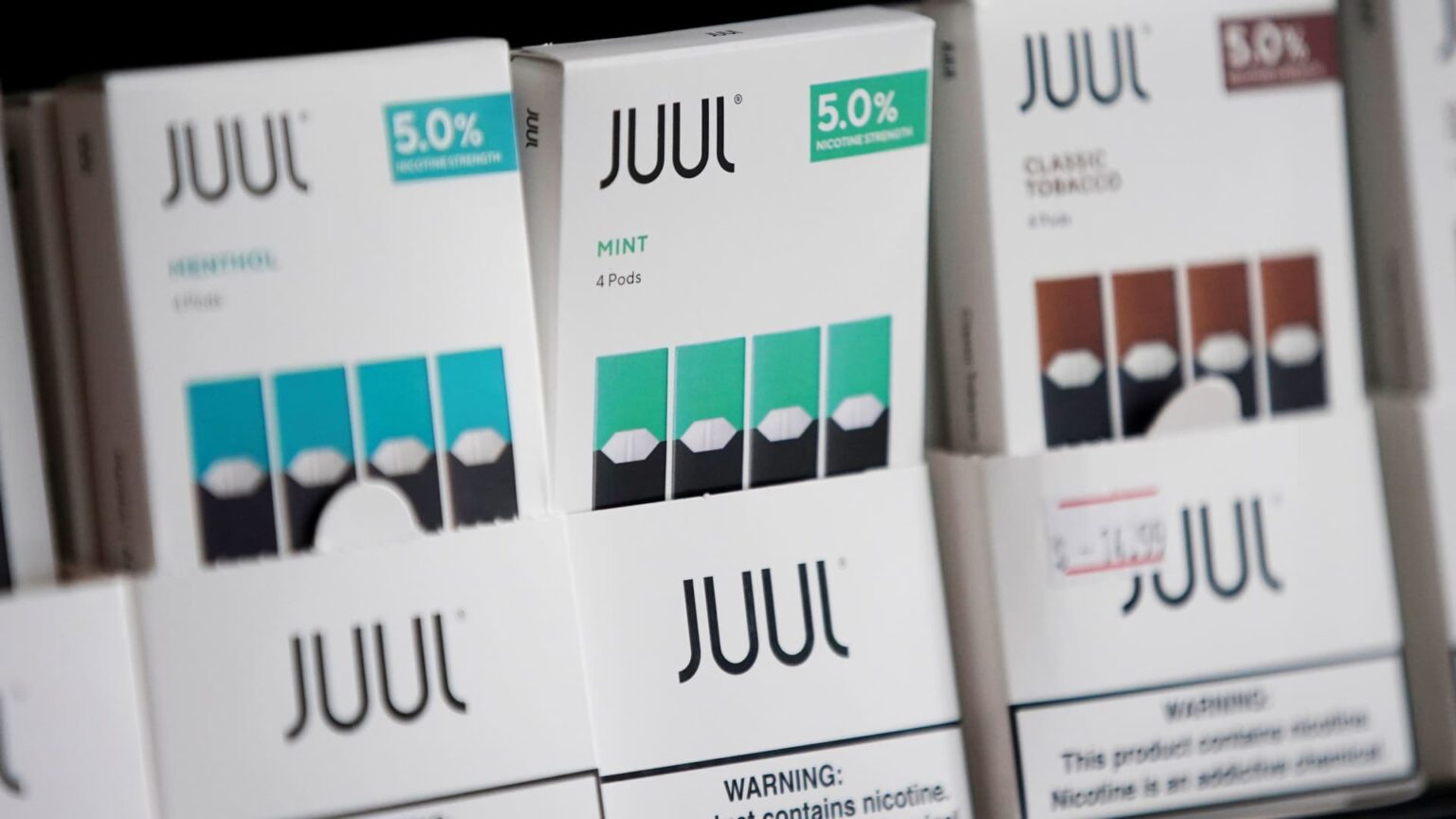Global Courant 2023-04-13 14:14:09
Juul will pay $462 million to settle claims from six states and Washington DC that the vaping company marketed its addictive e-cigarettes to underage teens, five Democratic attorneys general announced Wednesday.
The agreement is the largest multi-state settlement the company has reached to date, the attorneys general said at a news conference. It means that Juul has now settled with 45 states for more than $1 billion.
The deal will strictly limit Juul’s sales and marketing capabilities and will force Juul to secure its products behind store counters and verify the age of buyers, the official added.
The states that reached the settlement with Juul are New York, California, Massachusetts, New Mexico, Illinois and Colorado.
“There is no doubt that Juul played a central role in the vaping epidemic today,” said New York Attorney General Letitia James. “Juul is paying for widespread damage and will face severe restrictions on its marketing and sales practices.”
The settlement adds to years of heavy research into Juul, the former Silicon Valley darling among tobacco giants and investors alike. A series of payouts to both governments and consumers over allegations that it is marketing addictive products to teens has left the company scrambling for options to stay afloat.
The settlement moves the company closer to a “total resolution of the company’s historical legal challenges and assuring certainty for our future,” a Juul spokesperson said. They noted that underage use of Juul products has decreased by 95% since the company dropped all US advertising and discontinued most flavors in 2019.
“Now we are positioned to pay even more attention to our path forward to maximize the value and impact of our product technology and science base,” the spokesperson told CNBC.
Juul’s priority is to obtain approval from the company’s Food and Drug Administration Applications of premarket tobacco productswhich it needs to legally market its products in the US, the spokesman said.
The FDA rejected those applications last June, essentially banning Juul from selling its vaping products. But the agency temporarily suspended that decision a month later and is now ineffective.
Under the settlement announced Wednesday, California will receive $175.8 million, which will be used for e-cigarette research, education and enforcement, said state attorney general Rob Bonta. New York will receive $112.7 million over eight years, which will support programs to reduce underage vaping across the state.
Massachusetts will receive $41.7 million, part of which will be used to fund vaping addiction treatment. Colorado will receive nearly $32 million, New Mexico $17 million and DC about $15 million.
James said Juul led consumers to believe its vapors are safer than cigarettes. But a pod of Juul’s e-cigarette contains the same amount of nicotine like a whole pack of cigarettes, she remarked.
She said the company’s colorful ads often featured young models and flashy parties, downplaying “the harmful effects” of its products.
“By taking a page out of big tobacco’s playbook, Juul misled consumers about the health risks of their products,” she said.
James highlighted the agreement’s action against Juul’s marketing practices. She noted that the company will be barred from funding or conducting youth education and prevention campaigns.
The agreement will also force Juul to stop using people under the age of 35 in its marketing materials that directly or indirectly target young people, James said.
Teen vaping skyrocketed across the country after the company launched in 2015, leading to the Food and Drug Administration to declare an “epidemic” of underage e-cigarette use just three years later. Parents, school administrators and politicians largely blamed the company for getting a generation of young people addicted to its high-nicotine capsules.
Since then, Juul has been beset by lawsuits and state-led investigations into its products and allegedly deceptive marketing practices.
Those legal and hurdles and a potential US ban hurt Juul’s bottom line.
The company said in November it had secured enough new funding to stave off bankruptcy. But at the time it announced plans to lay off about 400 staff and cut its operating budget by 30% to 40%.
Juul appeared to be exploring other options in January. Company leaders were in early talks with Philip Morris, Japan Tobacco and Altria about a possible sale, investment or alliance. Wall Street Journal reported at the time.
More than 3 million middle and high school students used tobacco products last year, according to one report released in November by the FDA and the US Centers for Disease Control and Prevention.
E-cigarettes were the most commonly used tobacco product among those youth, as more than 2.5 million students used them, the report said. It added that youth use of tobacco products in any form is unsafe.







